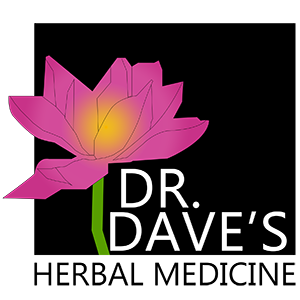



Good Night
Sleep easy with this calming herbal combination:
- formulated to calm the heart, mind and spirit
- all natural, safe and effective ingredients
- won’t wake feeling drowsy
Description
Good Night is an all natural remedy designed to alleviate insomnia and help you sleep better. Good Night contains herbs which soothe and nourish the heart to promote healthy, restful sleep. Unlike other herbal or over the counter sleep remedies which work by sedation, Good Night embraces the Chinese herbal medicine principle of nourishing and harmonizing the heart.
If the heart, which is the seat of the soul and spirit, is content, the body is able to relax into a deep sleep. Good Night will not leave you feeling tired or groggy in the morning because its focus is on nourishing the heart, not sedating the body.
Ingredients
-
Dragon Bone (Long Gu)
"Dragon bone" is actually fossilized animal bone from non-mythical sources. It is high in calcium, potassium, sodium and other trace elements. Its main functions are to calm the spirit (or shen), heart and liver, and to prevent fluid loss. Typically, dragon bone is used as a sedative to reduce stress and calm the mind.
-
Oyster Shell (Mu Li)
Oyster shell refers to the inner and outer shell of an oyster. The shell contains a variety of vitamins and minerals, especially several derivatives of calcium. Its main functions are to calm the liver and suppress overactive yang; tranquilize the mind; arrest discharges and induce astringency.
-
Zizyphus (Suan Zao Ren)
Also known as the Chinese date, the Zizyphus jujuba is a type of tree native to China. The fruit is dried and used in herbal remedies. Jujuba has a tonifying effect, and is used to tonify spleen and stomach qi. It calms the spirit and nourishes the blood. It also is used as a harmonizing herb in herbal formulas.
-
Anemarrhena (Zhi Mu)
Anemarrhena is a small, ornamental plant native to northern China. The root is used medicinally. Anemarrhena has been used as a staple of traditional Chinese medicine for centuries; its first recorded use dates back to 200 BC. Anemarrhena purges heat, nurtures yin and relaxes tension.
-
Polygonum Stems (Ye Jiao Teng)
Polygonum contains a variety of compounds and active ingredients, including quercetin, salicylic acid and lysine. The herb is gathered during its flowering season and dried before being used. Polygonum nourishes the heart Yin, calms the spirit and unblocks channels.
-
Salvia (Dan Shen)
The rhizome and roots are used medicinally. It promotes blood circulation, which helps treat irregular menstruation, dysmenorrhea and amenorrhea; removes heat from the blood (to relieve inflammation); and calms the mind and soothes irritability.
-
Ophiopogon (Mai Men Dong)
Ophiopogon is a small herb grown in small parts of China. The plant has long, thin green leaves and tuberous whitish roots, which are used in a variety of herbal remedies. It is typically harvested in the summer and allowed to dry out before use. It clears heat and moistens the body.
-
Biota Seed (Bai Zi Ren)
Biota is a slow-growing tree native to China. The seeds are usually used as a sedative, and are often a component of various shen, or spirit, tonics. Among the conditions biota seed is used to treat are irritability, insomnia, memory loss, anxiety, constipation and night sweats.
-
Licorice (Gan Cao)
Licorice has been used to flavor foods for centuries. Licorice root is used medicinally. The two most important components of licorice are glycyrrhizin and flavonoids. Glycyrrhizin works as an anti-inflammatory and antiviral and inhibits the breakdown of cortisol. It also augments Qi, moistens lungs, resolves phlegm and stops coughing.
-
Poria Spirit (Fu Shen)
Poria is a type of fungus related to polyporus, which usually grows on pine trees. It calms the spirit and reduces irritability, palpitations, insomnia, and forgetfulness.








